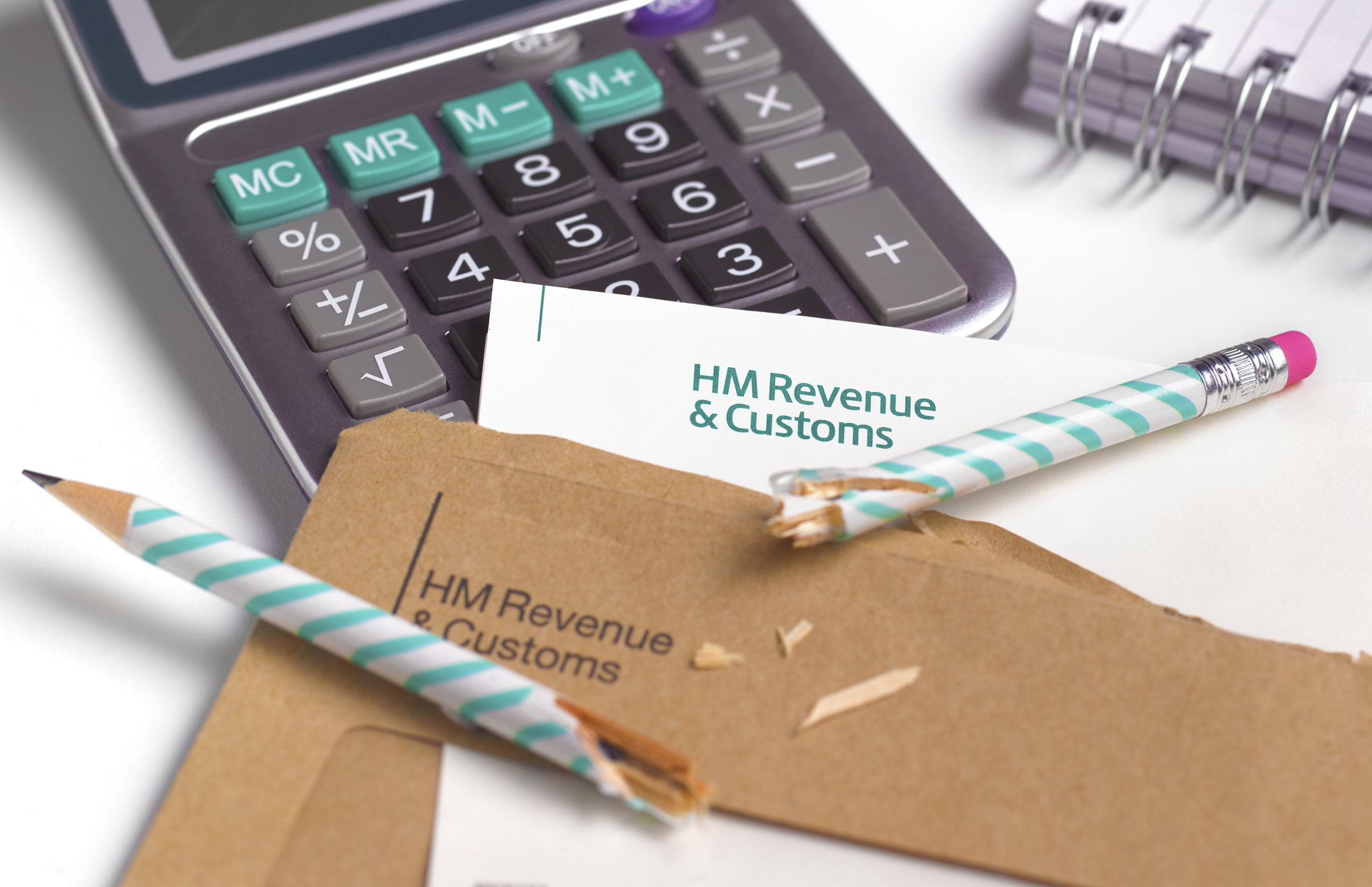By Marc Shoffman
Copyright moneyweek

Try 6 issues free
View all Investing
Stocks and Shares
Commodities
Personal Finance
Personal Finance
Personal Finance
Personal Finance
View all Personal Finance
Bank accounts
Credit cards
View all Economy
Global Economy
MoneyWeek quizzes
Spending it
On this day in history
Latest magazine issue
MoneyWeek glossary
Newsletters
Newsletter sign-up
Manage my newsletters
Latest newsletter
Newsletter sign up
Inflation live
MoneyWeek quiz
£560 state pension rise
Personal Finance
Simple assessment explained as millions brace for unexpected tax bills
Increasing numbers of people could get letters from HMRC saying they owe more tax due to frozen thresholds, under a system known as simple assessment. Here is what it means for you.
Newsletter sign up
When you purchase through links on our site, we may earn an affiliate commission. Here’s how it works.
(Image credit: Getty Images/Peter Dazeley)
Marc Shoffman
19 September 2025
in Features
Millions of pensioners and savers may have received an unexpected tax bill over the summer from HMRC, under the taxman’s simple assessment system.
Frozen tax thresholds mean more of people’s earnings and savings interest are pushing people into higher tax brackets.
Any untaxed income or savings interest is usually reported to HMRC automatically through pay-as-you-earn or through self-assessment.
Subscribe to MoneyWeek today and get your first six magazine issues absolutely FREE
Get 6 issues free
Sign up to Money Morning
Don’t miss the latest investment and personal finances news, market analysis, plus money-saving tips with our free twice-daily newsletter
Don’t miss the latest investment and personal finances news, market analysis, plus money-saving tips with our free twice-daily newsletter
Some people don’t typically earn enough or fit the criteria for PAYE or self-assessment, such as if you don’t have a job, are retired and don’t run your own business.
However, rising state pension payments and higher savings interest are pushing more people over their tax allowances.
In some cases, the only way for HMRC to get the tax owed, if someone doesn’t fit the criteria to regularly file a tax return, is through simple assessment.
The taxman has sent 1.4 million simple assessment letters to people who owe money over the past month.
Many may be confused by the letters and not believe it is from HMRC.
But HMRC’s chief customer officer Myrtle Lloyd says it is important to not ignore it, adding: “If a letter drops on your mat – or appears in your online Personal Tax Account – you’ve been sent it for a reason. Anyone who receives a simple assessment letter and wants to find out more is encouraged to go online to GOV.UK, where there’s plenty of guidance to help.”
Here is what you need to know.
What is simple assessment?
The simple assessment system is designed to simplify payments for those with relatively straightforward tax affairs who may owe money to HMRC.
The letters are usually sent if your income exceeds the personal allowance and the unpaid tax cannot be collected automatically through pay as you earn (PAYE) or self-assessment.
Simple assessment letters are automatically generated and sent to customers when HMRC receives information about a customer’s income. This information can come from a number of sources including employers, the Department for Work and Pensions (DWP), banks, building societies and financial institutions.
There is no fixed income threshold that automatically triggers a simple assessment.
HMRC generally issues them when a person owes more than £3,000 in unpaid income tax and is not already in self-assessment, if tax cannot be collected through PAYE, such as from the state pension, or if HMRC believes it has enough information to calculate the tax due accurately.
Critics say it creates unnecessary and annoying administration for the public.
Eamonn Prendergast, chartered financial adviser for Palantir Financial Planning, said: “For many, it’s their first encounter with self-assessment, and the experience is confusing, stressful, and outdated. Letters often land without warning, phone lines mean hours on hold, and you can’t even email HMRC; a 20th century system for a 21st century problem.
“This isn’t just fiscal drag; it’s administrative drag too. Unless thresholds are unfrozen, more ordinary people will face surprise tax bills, the risk of paying the wrong amount, and unnecessary stress.”
He said people can protect themselves by checking tax codes and keeping records, adding: “But fundamentally this is a problem created by policy, not by savers.”
Why have I received a simple assessment letter?
The simple assessment letter should provide you with an assessment of any tax you owe and how it was calculated.
It shows in detail where any additional income has come from. Income may come from a number of sources including savings, a second job, paying too little tax as well as income from pension.
If you believe the assessment is wrong, you need to get in touch with HMRC within 60 days to raise a query.
Rob Mansfield, independent financial adviser at Rootes Wealth, said: “Nobody likes getting a letter from HMRC.
“For a long time interest was so paltry that it was difficult to gain more than the threshold. Higher interest rates and tighter allowances mean that more people are now affected. If you get a bill, check it and make sure it’s right as HMRC do make mistakes. If you don’t want a bill in future years, make sure you use things like your ISA allowance to shield your money from the taxman.”
How to pay a simple assessment tax bill
The quickest way to pay is by using the secure HMRC app or through your Personal Tax Account.
Payments can also be taken via GOV.UK, by bank transfer, by cheque or over the telephone using the contact number in your letter. A full list of payment methods can be found on GOV.UK.
But watch out for HMRC tax return scams.
Lloyd added: “Simple assessment may well provide criminals with an opportunity to attempt to commit fraud. The only way HMRC will contact simple assessment customers is via a letter or through their Personal Tax Account.
“Criminals use phishing and scam emails, phone calls and texts to try to steal information and money from taxpayers.
“Customers should never share personal details including their HMRC sign-in details.”
The payment deadline for the 2024/25 tax year is 31 January 2026, similar to the online self-assessment deadline, unless customers are given an alternative date in their letter.
Simple assessment payments can be made in full, or in instalments, before the deadline.
Explore More
HM Revenue and Customs
Sign up for MoneyWeek’s newsletters
Get the latest financial news, insights and expert analysis from our award-winning MoneyWeek team, to help you understand what really matters when it comes to your finances.
Contact me with news and offers from other Future brandsReceive email from us on behalf of our trusted partners or sponsorsBy submitting your information you agree to the Terms & Conditions and Privacy Policy and are aged 16 or over.
Marc Shoffman
Social Links Navigation
Contributing editor
Marc Shoffman is an award-winning freelance journalist specialising in business, personal finance and property. His work has appeared in print and online publications ranging from FT Business to The Times, Mail on Sunday and the i newspaper. He also co-presents the In For A Penny financial planning podcast.
‘Labour’s failure on housing is becoming a national crisis’
Labour’s plans on house building are not working out and it’s not hard to work out what has gone wrong, says Matthew Lynn
Britain’s migration crisis
Public concern over immigration is at the highest level since polling company Ipsos first started asking about the issue. So what’s being done about it?
You might also like
What are wealth taxes and would they work in Britain?
The Treasury is short of cash and mulling over how it can get its hands on more money to plug the gap. Could wealth taxes do the trick?
When is the self-assessment tax return deadline?
If you are self-employed, rent out a property or earn income from savings or investments, you may need to complete a self-assessment tax return. We run through the deadlines you need to know about
Child Benefit: how it works, eligibility criteria and how to claim
Child Benefit is worth hundreds of pounds per year and claiming it can help build up your state pension entitlement. We look at who is eligible and how to get the payment
HMRC warning after scammers target 170k taxpayers – how to stay protected
Scammers are using increasingly sophisticated methods to trick people into sharing personal details or paying for fake self assessment tax refunds
HMRC rewarded tax informants with £850,000 as record fraud tip-offs sent to taxman last year
The taxman was tipped off about 164,670 cases of alleged fraud last year, but total rewards given to snoops fell in the 2024/5 tax year.
HMRC savings tax crackdown: More workers to pay tax directly from their wages
Banks and building societies will be required to obtain National Insurance numbers from savers to make it easier for HMRC to tax those who breach their personal savings allowance
Inheritance tax investigations catch out 1200 more families in HMRC crackdown
Where there is a suspicion inheritance tax has been underpaid, HMRC has extensive powers to check the deceased individual’s financial affairs and chase what is owed. Will you pay more?
Could state pension age rise to 70? Review launched
The government has launched a review of the state pension age, which will consider the “merits” of automatic increases tied to life expectancy
View More \25b8
Useful links
Subscribe to MoneyWeek
Get the MoneyWeek newsletter
Latest Issue
Financial glossary
MoneyWeek Wealth Summit
MoneyWeek Live Reports
Most Popular
MoneyWeek share tips
MoneyWeek savings stories
MoneyWeek tax stories
Contact Future’s experts
Terms and Conditions
Privacy Policy
Cookie Policy
Advertise with us
MoneyWeek is part of Future plc, an international media group and leading digital publisher. Visit our corporate site.
Future Publishing Limited Quay House, The Ambury,
BA1 1UA. All rights reserved. England and Wales company registration number 2008885.



